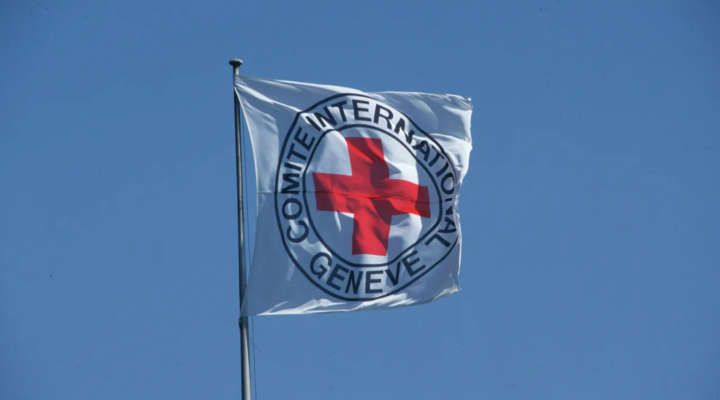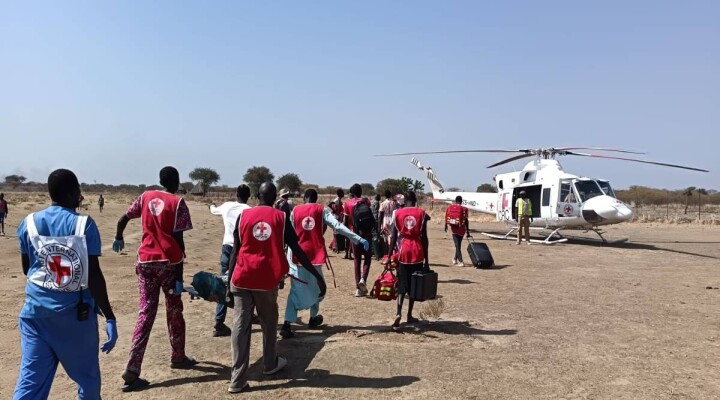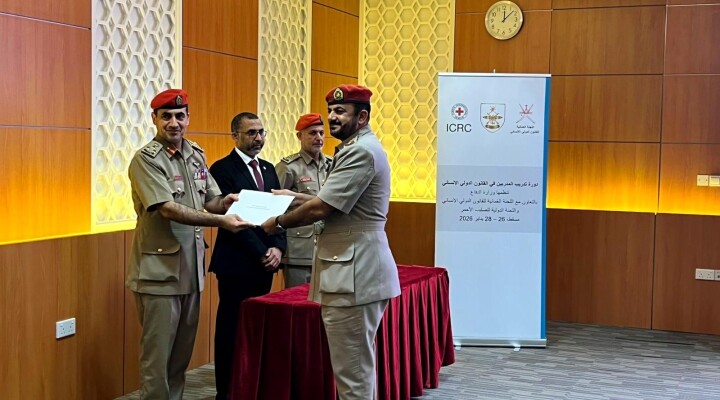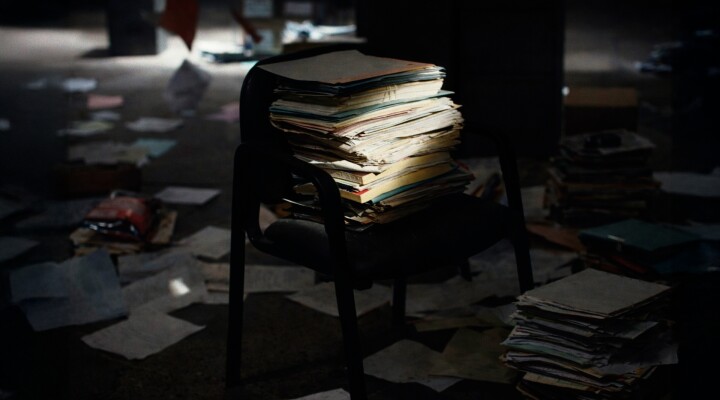Cox's Bazar, Bangladesh: Bamboo Sticks and Plastic Bags: Trying to Stay Alive in the Monsoon
The monsoon is beginning in Bangladesh. In Cox’s Bazar, almost a million people fleeing from violence in Myanmar’s Rakhine state are living in fragile shelters. There has been no shortage of political initiatives to fashion a safe return home for these communities from Rakhine that crossed the Bangladesh-Myanmar border, but that is unlikely to happen before this monsoon season. So how will people endure the oncoming monsoon season and potential storms?
“June, July and August will be difficult because of the monsoon,” says the ICRC’s Jamshedul Karim. “You can see people have built houses on these hills, but most of the hills don’t have enough trees left to hold down the soil. During the monsoon, with heavy rain, many people will be at risk.”
The ICRC is working with the displaced communities, helping them to reinforce their bamboo shelters. The situation is far from ideal, but Ali Hossein knows he must find ways to keep his family safe in this difficult environment.
“Here there is often wind, rain, and storms” he says. “We’re living at the top of the hill, we worry all the time that the rain will trigger a landslide which could damage our shelter, and even injure people.”
Landslides are not the only thing Ali is worried about. He relies on food from an ICRC distribution center, and the walk back to his shelter can be difficult. Furthermore, torrential rains could ruin his food supplies.
“If we eat wet rice, we’ll get sick” he explains. “Rice must be kept dry. If we could have the food distribution center closer to our camp during the monsoon season that would really help us.”
Hundreds of thousands of people rely on food rations in Cox’s Bazar. Humanitarian aid agencies cannot afford to have vital supplies spoiled by the weather. Neither, of course, can the families who need that food to survive.
“We’re trying to set up the distribution point as close as possible to the camps” says ICRC Field Officer Abdul Munaf. “And we’re talking to other aid agencies about this problem. In the meantime, we plan to wrap the food parcels in plastic bags, to protect them from the rain.”
Already, the rains have begun. It has become a race against time to reinforce fragile shelters, and to improve basic sanitation. In this environment, health risks are a big worry, especially for parents of young children. Ayesha Khatun has brought her son to the ICRC’s mobile clinic.
At times “doctors are treating people out here in the open air”, she points out. “But they won’t be always be able to do that during the monsoon, because there will be storms and rain.”
Bamboo sticks, plastic bags, doctors working under the open sky. These are some of the necessary measures for up to a million people living in camps in Cox’s Bazar. But they are not the answer to the underlying problem. Until a political solution is found, the ICRC and other humanitarian agencies will keep putting in the work to help people survive in a most challenging environment.
Facts and Figures ICRC Bangladesh
The ICRC, working with the Bangladesh Red Crescent Society, is supporting displaced communities from Myanmar living in Bangladesh with food rations and basic health services through mobile health clinics. The ICRC has sent Restoring Family Links officers to the camps to help trace missing family members.
94,757 people have received essential food and non-food items
62,113 patients have been treated at mobile health services
47,133 people received support with water and sanitation
8,518 displaced people were helped to contact family members
For further information, please contact:
Rayhan Sultana Toma
Communication Officer
International Committee of the Red Cross (ICRC)
House 72, Road 18, Block J
Banani, Dhaka 1213, Bangladesh
Tel: +88 02 8837461, +88 02 8825686
Fax: +88 02 8837462
www.icrc.org/bd Facebook: icrcfans
Graziella Leite Piccoli
Communications and Public Relations for Asia International Committee of the Red Cross (ICRC) Regional Delegation Bangkok, Thailand T +66 (0) 2262 1680 | M +66 (0) 81 9501270
Follow the ICRC on facebook.com/icrc and twitter.com/icrc
SHOTLIST
0:00 – 0:15 Wind blowing in camps
0:15 – 0:22 Aerials camps
0:22 – 0:29 Man walking carrying sack of rice
0:29 – 0:58 Soundbite ICRC delegate Jamshedul Karim (original with English translation) “June, July and August will be difficult because of the monsoon. You can see people have built houses on these hills, but most of these hills don’t have enough trees. During the monsoon, with heavy rain, they will be at risk.”
0:58 – 1:55 Various reinforcing bamboo shelters
1:55 – 2:09 Soundbite Ali Hossein (original with English translation) “Here there is often wind, rain, and storms. We’re living at the top of the hill, we worry all the time that the train will trigger a landslide which could damage our shelter, and even injure people.”
2:09 – 2:27 Ali Hossein walking with sack of rice
2:27 – 2:44 Soundbite Ali Hossein (original with English translation) “If we eat wet rice, we’ll get sick. Rice must be kept dry. If we could have the food distribution center closer to our camp during the monsoon season that would really help us.”
2:44 – 3:33 Food distribution various
3:33 – 3:57 Soundbite ICRC Field Officer Abdul Munaf (original with English translation) “We’re trying to set up the distribution point as close as possible to the camps. And we’re talking to other aid agencies about this problem. In the meantime, we plan to wrap the food parcels in plastic bags, to protect them from the rain.”
3:57 – 4:17 Camp various, wet, mud etc
4:17 – 4:43 Mobile open air health clinic various
4:43 – 4:55 Soundbite Ayesha Khatun (original with English translation)
“Right now doctors are treating people out here in the open air. But they won’t be able to do that during the monsoon, because there will be storms and rain.”
4:55 – 5:12 More mobile open air health clinic
5:12 – 5:47 Camp various
Length: 5:47
Format: HD H264 mov
ICRC ref: AV884N
Date: 13-15 May 2018
Copyright: ICRC access all



